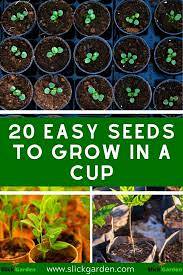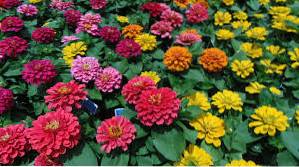It's important to bear in mind that seeds and seedlings shouldn't be treated the same as grown herbs. Seeds should be watered gently every day so that the soil stays moist, but at the same time you shouldn't overwater them or else they will rot and fail to sprout. Seedlings also require a lot of water.
- How often should I water herb seedlings?
- How often do you need to water seeds?
- How do you water herb seeds?
- How long does it take for herb seeds to sprout?
- Why do my herbs keep dying?
- Should you water herbs everyday?
- Will grass seed grow if I just throw it down?
- What is the best way to start seeds indoors?
- Can I start seeds in potting soil?
- Should I soak herb seeds before planting?
- Is it easy to grow herbs from seeds?
- Do herbs need direct sunlight?
- How long does it take thyme to grow from seed?
- How many seeds should I plant?
- Should I soak thyme seeds before planting?
- How do you revive a dying herb plant?
- How do you revive a dying Mint?
- How do you keep supermarket potted herbs alive?
- How do you know if you are overwatering your plants?
- What does Overwatered basil look like?
- Can you over water herbs?
How often should I water herb seedlings?
3. How much water and sun does my herb plant need? Most herbs need about 4 hours of sunlight per day and on average watering should be done when the soil feels dry to the touch. Some herbs can be kept more moist such as Basil, others need to have soil dry completely between watering such as Lavender.
How often do you need to water seeds?
Yes, seeds normally need to be watered at least once per day to keep the soil moist, not permitting it to dry out. In especially warm climates (or depending on your soil or garden setup), you may need to water more than once per day. Check on your seeds or seedlings frequently to make sure they have plenty of water.
How do you water herb seeds?
The seeds and seedlings should only need a light sprinkle of water about twice per week, depending on the temperature of the home. Allow the planting media to dry out a little before watering again.
How long does it take for herb seeds to sprout?
It is not unusual for seed to take two to four weeks to germinate, although some herbs are much faster. For most herbs, a germination temperature of 70°F is optimal. If you keep your thermostat lower, you should invest in a heat mat to start your seeds.
Why do my herbs keep dying?
If a pot feels light, the soil is probably dry and ready for watering. Overwatering is the cause of far more plant deaths than under-watering. ... Don't do this, it won't help at all, and your plants will still die a slow death by drowning. Root systems need air, and when they don't get it, they rot and die.
Should you water herbs everyday?
In general, moisture-loving herbs need a ½ liter of water for each square foot (nearly 0.1 square meters) of soil every week. However, you can't use that measurement with potted plants. Instead, you should water your moisture-loving potted herbs once or twice every day, especially in hot seasons.
Will grass seed grow if I just throw it down?
The simple answer is, yes. Beyond just throwing the seed out into the lawn and not performing any grass maintenance there is a whole world of lawn care. ... Even though the seeds will sprout if just thrown on the surface of the dirt there are negative effects of planting the seed in that fashion.
What is the best way to start seeds indoors?
How to Start Vegetable Seeds Indoors
- Purchase your seeds from a trusted source. ...
- Pot with seed-starting mix. ...
- Make sure your containers have drainage holes. ...
- Plant seeds at the proper depth. ...
- After sowing, set the containers in a warm location. ...
- Keep seed-starting mix moist. ...
- As soon as seedlings emerge, place pots in a bright location.
Can I start seeds in potting soil?
Although potting soils may be used to start seeds, they tend to have a more coarse texture and may contain field soil, compost or composted manure along with vermiculite, peat moss or perlite. ... Although this may be an inconvenience, few seeds will be viable if the soil has been pasteurized.
Should I soak herb seeds before planting?
One day before you plan to get set up, it's a good idea to soak some herb seeds. Although it's not essential, soaking herb seeds helps soften the hard outer shell of some varieties thereby increasing their germination rates. Varieties that benefit from pre-soaking for 12-24hrs include parsley and coriander.
Is it easy to grow herbs from seeds?
Starting herbs from seeds will not only give you the culinary zest you desire, but growing your own herbs is an easy project even if you don't have gardening experience.
Do herbs need direct sunlight?
Most herbs thrive in typical garden soil, as long as it has good drainage. ... If your garden soil is heavy, grow these herbs in raised beds or planters. Most herbs thrive in full sun (six or more hours of direct sunlight per day).
How long does it take thyme to grow from seed?
Thymus vulgaris, common thyme is a shrub-like perennial. Easy to grow from seed though germination is slow taking from 14 to 28 days. Seeding best started indoors in a flat where temperature can be kept around 70°. Thyme seeds are very small, 170,000 to the ounce.
How many seeds should I plant?
Don't exceed three seeds per hole. If more than one germinates, snip off extras at the soil line also. This prevents disturbance of the seedling roots on the one you'll continue growing out when thinning. Don't add more than one large seed to a hole.
Should I soak thyme seeds before planting?
Seed Preparation: Thyme seeds do best with a little cold stratification or an overnight soak. For tips, visit our post, "The Dirt on Successful Seed Germination" and be sure to use fresh thyme seeds.
How do you revive a dying herb plant?
Depending on your herb, light pruning or hard pruning might be best. If you harvested the herbs and the plant is looking unhealthy, it might be a signal that you overdid it. Wait a few days, giving the plant the chance to bounce back; if not, it might be time to plant a new one.
How do you revive a dying Mint?
Water the mint as frequently as required to keep the soil moist and the mint should recover from a wilted appearance in a few days. It is also important to plant mint in pots with drainage holes in the base which allows excess water to escape and prevent root rot.
How do you keep supermarket potted herbs alive?
How to Keep Supermarket Herbs Alive: 5 Top Tips
- Choose the right plants.
- Repot them with fresh potting mix and larger pots.
- Split up overcrowded plants.
- Water regularly.
- Harvest them correctly.
How do you know if you are overwatering your plants?
Are You Sure that Plant Needs Water? 5 Signs of Overwatering
- Wet and Wilting. It looks wilted, but the soil is wet. ...
- Brown Leaves. If the leaves turn brown and wilt, there is the possibility that you have been overwatering. ...
- Edema. The third sign that your plant has been overwatered is edema. ...
- Yellow Falling Leaves. ...
- Root Rot.
What does Overwatered basil look like?
Signs of Overwatered Basil
Yellow leaves that start from the lower leaves and work upwards. If you remove the plant, the roots will be mushy and brown or black.
Can you over water herbs?
Like all plants, herbs need to watered regularly, but there is a point where you can give them too much water. The effects of overwatering can be as devastating as underwatering and your herbs can die if they receive more water than they can handle.
 Planetagarden
Planetagarden



